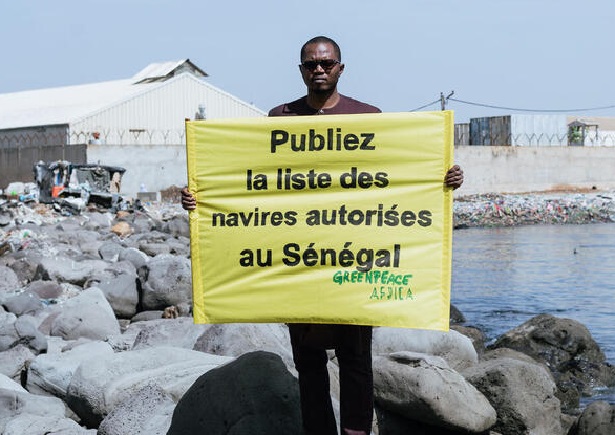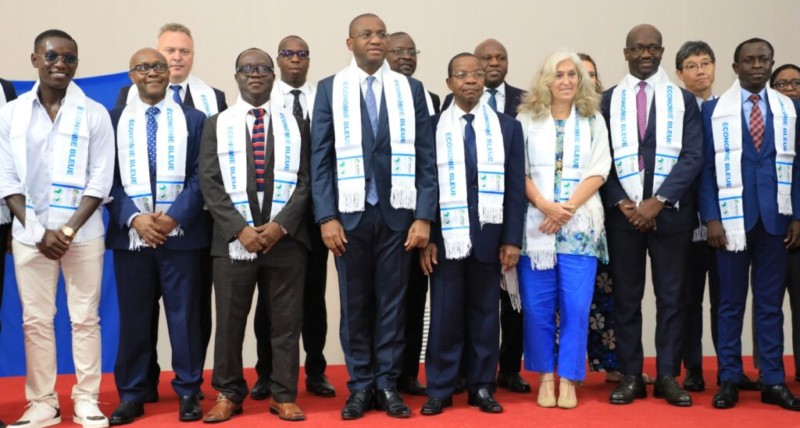Greenpeace Africa has welcomed the publication by the new Senegalese government of the list of vessels authorized to fish in national waters, demonstrating its commitment to transparency and sustainability of marine resources. However, additional efforts are needed to ensure the sustainability of the exploitation of fisheries resources.
“For more than four years, Greenpeace and fishing communities have led campaigns and produced reports on the issue of transparency in fisheries management in Senegal. Greenpeace and one of the key demands was the publication of this list. Greenpeace Africa strongly encourages the State of Senegal to continue this momentum and audit Senegalese flags and join the Fisheries Transparency Initiative (FiTI), a global initiative promoting transparency and public disclosure of information on fisheries governance. By joining the FiTI, Senegal will strengthen its position as a regional leader as well as its commitment to the sustainable and transparent management of natural resources and consolidate the confidence of citizens and fisheries stakeholders,” declared Dr. Aliou Ba, head of the FiTI. Ocean campaign.
“We hope that after the publication of this list, a robust monitoring mechanism will be put in place to monitor and ensure that fishing is carried out legally. Only in this way can we give communities the opportunity to have enough fish and make a decent living from their activities. Greenpeace Africa is ready to support the new Senegalese government in its efforts to increase transparency and sustainability in the fishing sector,” continued Dr Ba of Greenpeace Africa.
The press release sent to www.lactuacho.com adds that Greenpeace Africa also recommends to the government:
Better protection of resources for the sustainability of artisanal fishing and food security.
Official recognition and professionalization of artisanal processing of fish products.
The involvement of fishermen in the governance of offshore oil and gas exploitation.
The freezing of new fishmeal factories and an environmental and social audit of existing factories.
Cancellation of illegal fishing licenses.
The reform of the Advisory Council for the allocation of fishing licenses into deliberative bodies.
Strengthening fisheries research resources, with a new vessel for the CRODT.
The freezing of new licenses targeting small coastal pelagics.
The easing of tensions and an inclusive dialogue with all stakeholders.
“Greenpeace Africa will continue to monitor developments in the fishing sector in Senegal and remains committed to promoting the sustainable management of marine resources in partnership with the government and local stakeholders,” concludes the press release.




